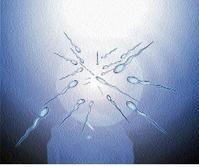Heather Little-White, Ph.D., Contributor
In our culture, men proudly boast of their manhood when they father a child. Conversely, when a man fails to father a child it causes him intense distress and his relationship suffers, as the tendency is to blame his woman in keeping with the popular myth that infertility is the woman's problem. In his distressed state, a man anxious to father a child engages in a series of relationships with the hope that he can get a 'yout' with a new mistress.
Herbert, aged 35, feels so badly about himself because he does not have a child yet, and his common-law wife of 10 years moved out and left him. Besides wanting a child herself, Herbert would curse and beat his wife for being 'barren' as the reason why he cannot father a child. His affairs with women in the community did not bring him his desire.
Eighteen months after his wife moved in to another live-in relationship with Herbert's cousin, she gave birth to a bouncing baby boy. Herbert was ridiculed by the district folks. It was only then that he realised that his was the problem and went to seek help from a doctor in a neighbouring town. His sperm count is being boosted and Herbert is hopeful that he will become a father within the year.
Infertility defined
The technical definition of infertility is the inability to get pregnant after trying for at least one year without using birth control. Approximately 15 per cent of couples are infertile and about one-third of those cases are caused by the man's inability to impregnate his spouse while another one-third is a combination of male and female inability. In fact, 50 per cent of infertility problems could be attributed to the male factor.
Infertility can result from a condition that is present at birth (congenital) or can develop later (acquired).
Fertilisation normally takes place within the female's uterine tubes after ovulation has occurred. During the menstrual mid-cycle, the cervical mucus changes to become more abundant, thinner and more watery. These changes serve to facilitate entry of the sperm into the uterus and to protect the sperm from the highly acidic vaginal secretions. Physiologic changes in the spermatozoa occur within the female reproductive tract in order for fertilisation of the egg to occur.
Common causes
According to Familydoctor.org, the most common cause of the male infertility is a varicocele. This occurs when the veins in the scrotum become enlarged on one or both sides. This causes the inside of the scrotum to heat up and may affect sperm production.
The second major cause of infertility in men is from blockages in the male reproductive tract. This is particularly true for men with zero sperm count, a condition called 'azoospermia'. Men with zero sperm count make no sperm at all, or they may make sperm but cannot get it out. The most exciting new development in the field of male infertility is the ability to treat men with severe sperm production problems called non-obstructive azoospermia. Even though these men may have no sperm in their semen, sperm can be found between the cells of the testicles in almost half of these cases.
Sexually transmitted diseases
Blockage can also be caused by a urinary tract infection or by the sexually transmitted diseases chlamydia and gonorrhoea. Bacteria can infect the tiny duct called the 'epididymis', which is essentially a swimming school for sperm before they are able to swim to fertilise an egg.
Infection of the epididymis can cause scarring and blockage, inhibiting the sperm from leaving the duct to fertilise an egg. With the use of microscopes employing 30-power magnification, blockage repair success rates are extremely high. Blockage may also be caused by vasectomy when a man decides he wants no more children. However, there are new techniques to reverse vasectomies in light of increasing divorce rates.
Dr. Marc Goldstein of the Cornell Institute for Reproductive Medicine reports that approximately one per cent of all infertile men are born with the congenital absence of the vas deferens, the 'equivalent' of a vasectomy. While there are no artificial tubes strong enough to replace the vas deferens, infertile men in this category are able to get help from an operating microscope to retrieve sperm from the tiny ducts of the epididymis, freeze them and use them later for in vitro fertilisation with the injection of the single sperm directly into an egg.
Not his real name
Genetics
Artificial techniques of reproduction have advanced to the point where a single sperm can be physically injected into an egg, even for the most severe male factor infertility, giving them the potential to conceive their own genetic child.
Other causes for male infertility include the following:
Medications (e.g., to treat high blood pressure, arthritis)
Retrograde ejaculation - a condition in which semen flows backwards into the bladder during ejaculation. Diminished or 'dry' ejaculation and cloudy urine after ejaculation may be signs of this condition.
Chemotherapy
Defect or obstruction in the reproductive system (e.g., cryptorchidism, anorchism)
Disease (e.g., cystic fibrosis, sickle cell anemia, sexually transmitted disease )
Hormone dysfunction caused by disorder in the hypothalamic-pituitary-gonadal axis
Infection (e.g., prostatitis, epididymitis, orchitis)
Injury causing trauma in the testicular region.
Metabolic disorders such as hemochromatosis (affects how the body uses and stores iron)
Systemic disease (e.g., high fever, infection, kidney disease)
Testicular cancer
Congenital causes as in Klinefelter syndrome and Hypogonadism
With advances in scientific discovery, male infertility should be easy to combat in the years to come, reducing the stress on couples and the heavy burden that men bear when they face difficulty in fathering a child.

